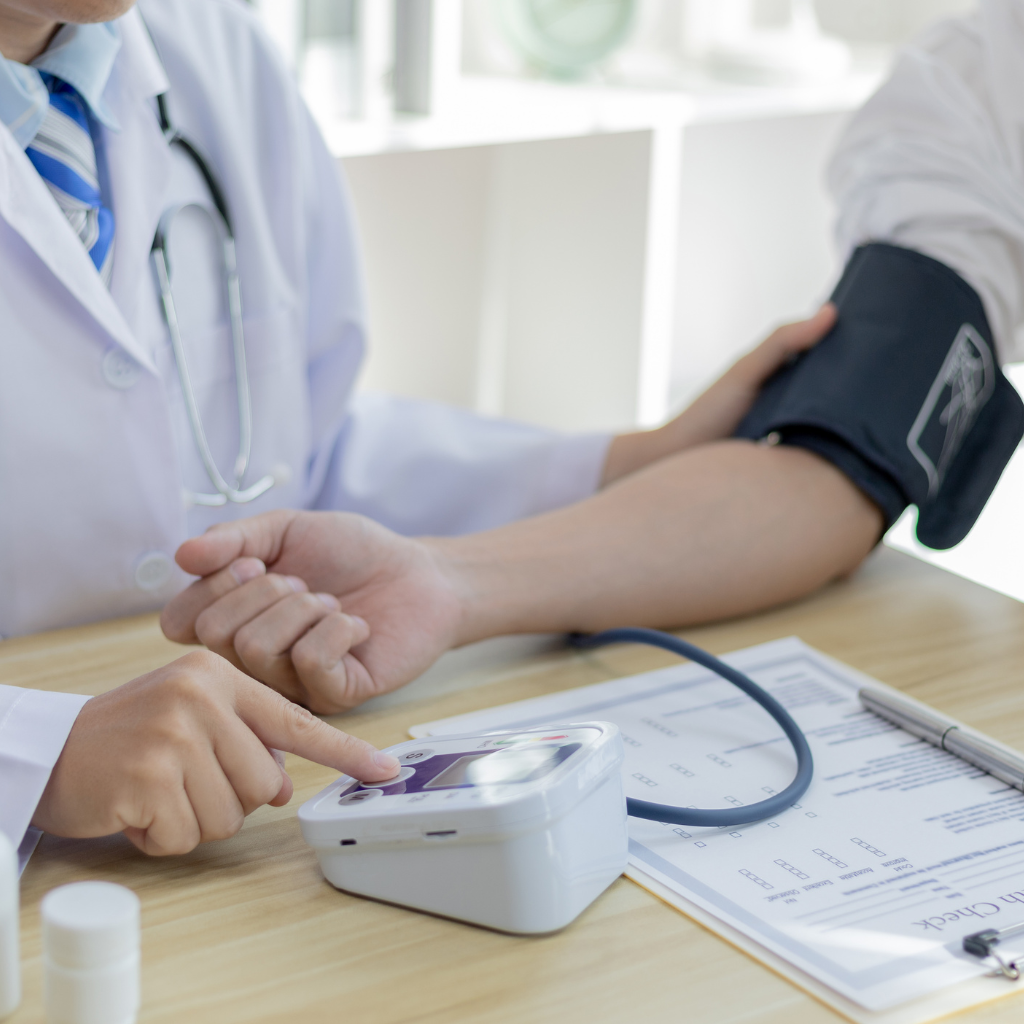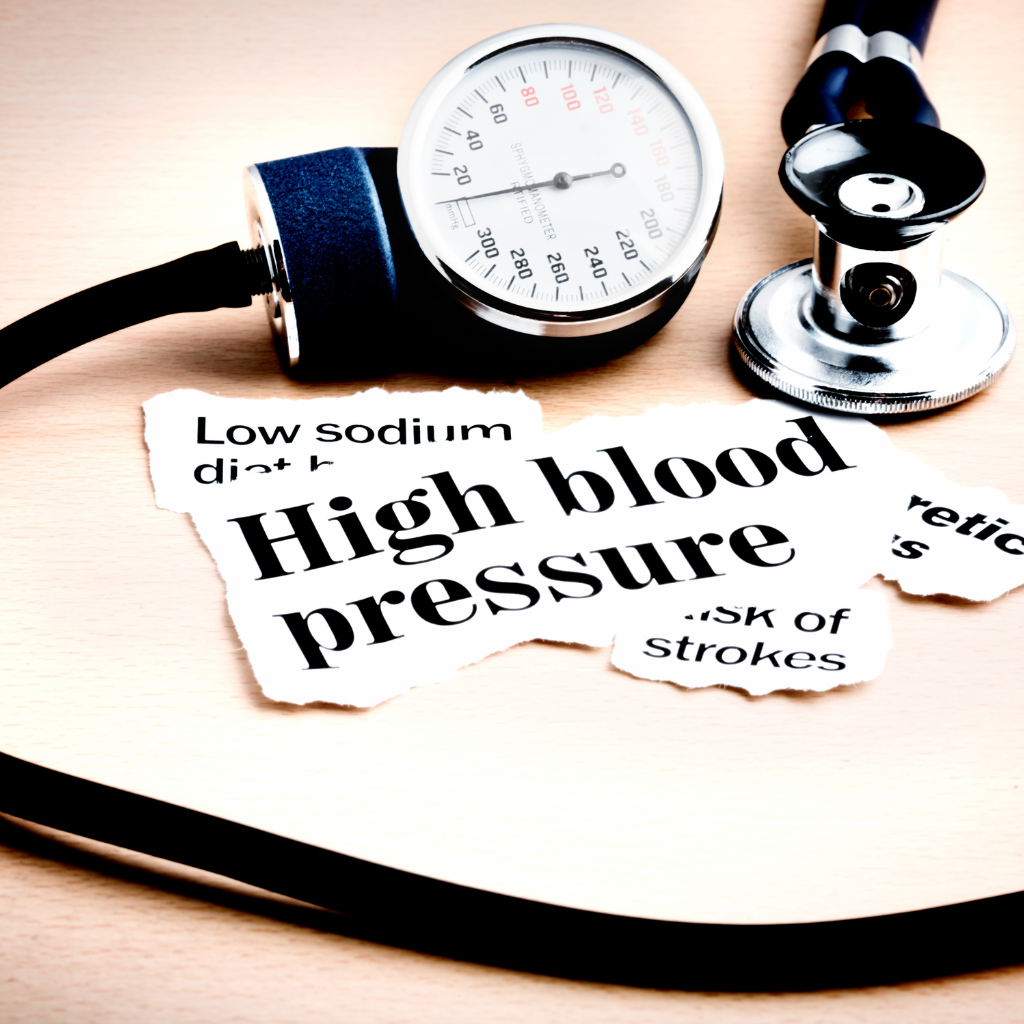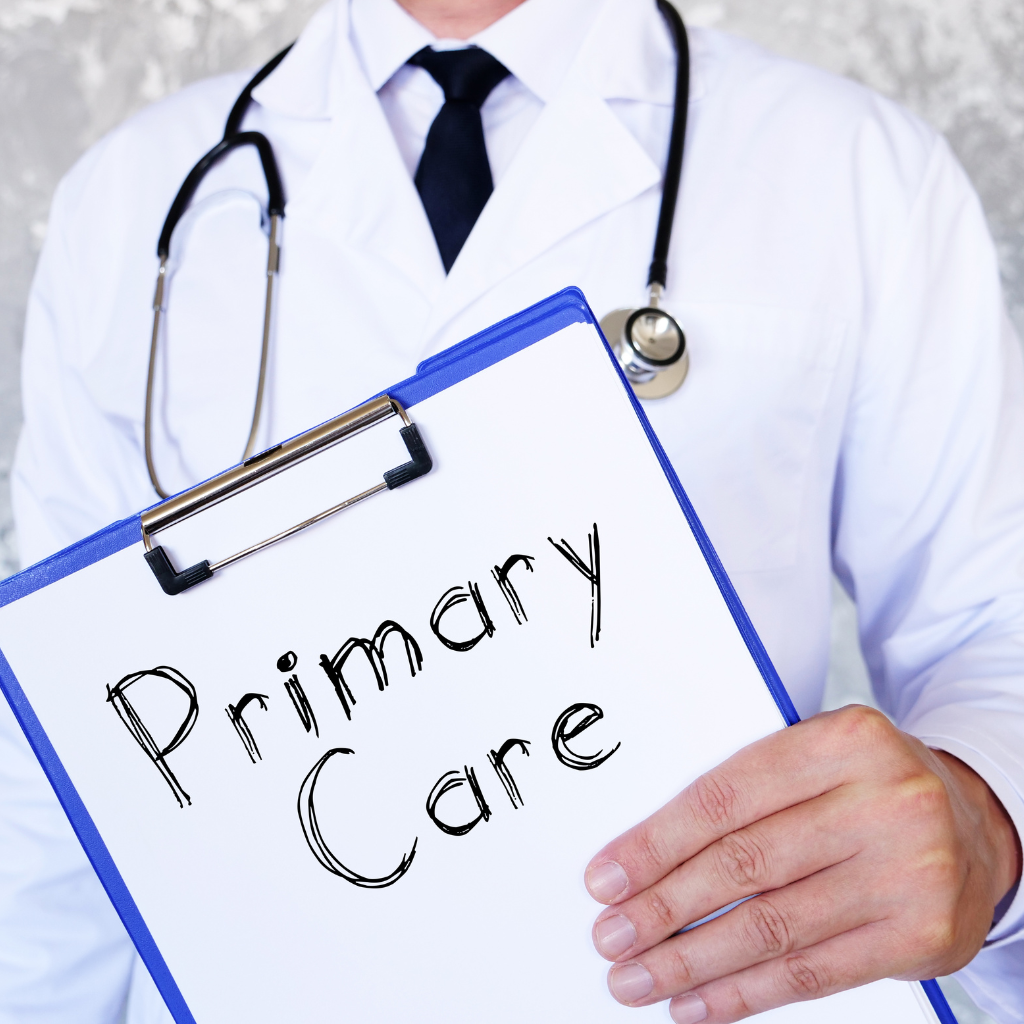Tri Health Family Wellness Center
You may already know that high blood pressure, or hypertension, is a prevalent medical condition affecting millions of people globally. It’s often called the “silent killer” since it can lead to severe health complications without showing any noticeable symptoms.
When left untreated, high blood pressure can lead to significant health consequences, including damage to the cardiovascular system, nervous system, kidneys, and eyes.
In this article, we will discuss the effects of untreated high blood pressure, its causes, and the available treatments to manage this condition.
What Is High Blood Pressure?
Blood pressure is the force of blood against the walls of the arteries as it flows through the body. Normal blood pressure is defined as less than 120/80 mm Hg. High blood pressure occurs when the blood pressure reading is consistently above 130/80 mm Hg.
Importance Of Treating High Blood Pressure

Did you know that having high blood pressure can significantly increase your risk for heart disease, stroke, and kidney disease? According to the Centers for Disease Control and Prevention (CDC), high blood pressure is a primary or contributing cause of death for more than 400,000 Americans each year. Treating high blood pressure is essential to reduce the risk of developing serious health problems.
Effects Of Untreated High Blood Pressure
A. Cardiovascular System
1. Heart Attack
Untreated high blood pressure can cause a buildup of plaque in the arteries, which can lead to a heart attack. A heart attack occurs when the blood supply to the heart muscle is blocked, causing damage to the heart muscle.
2. Stroke
High blood pressure can cause damage to the blood vessels in the brain, which can lead to a stroke. A stroke occurs when the blood supply to the brain is cut off, leading to brain damage.
3. Aneurysm
Untreated high blood pressure can cause an aneurysm, which is a bulge in a weakened blood vessel. If an aneurysm ruptures, it can cause severe bleeding and potentially life-threatening complications.
B. Nervous System
1. Dementia
High blood pressure can cause damage to the blood vessels in the brain, which can lead to dementia. Dementia is a group of conditions that cause a decline in cognitive function, including memory loss, thinking, and problem-solving.
2. Cognitive Impairment
Untreated high blood pressure can cause cognitive impairment, which is a decline in cognitive function that is not severe enough to be classified as dementia.
3. Headaches
High blood pressure can cause headaches, which can be severe and recurrent.
C. Kidney Damage
1. Chronic Kidney Disease
If you don’t manage your high blood pressure, it can mess up your kidneys and eventually lead to chronic kidney disease. That’s when your kidneys slowly stop working like they’re supposed to.
2. Kidney Failure
High blood pressure can cause kidney failure, which occurs when the kidneys are no longer able to filter waste and excess fluid from the blood.
D. Eye Damage
1. Retinopathy
Untreated high blood pressure can cause retinopathy, which is damage to the blood vessels in the retina. Retinopathy can cause vision loss and even blindness.
2. Vision Loss
High blood pressure can cause vision loss by damaging the blood vessels in the eye.

Causes Of High Blood Pressure
Diet
A diet high in salt, saturated fat, and cholesterol can increase the risk of developing high blood pressure. Excess salt in the diet can cause the body to retain water, which can increase blood pressure. Foods high in saturated fat and cholesterol can contribute to the buildup of plaque in the arteries, making it harder for blood to flow freely.
Exercise
Lack of physical activity can lead to high blood pressure. Regular exercise can help keep the heart and blood vessels healthy, reducing the risk of hypertension.
Smoking
Smoking can damage the blood vessels, causing high blood pressure. Nicotine in cigarettes can cause the blood vessels to constrict, increasing blood pressure. Over time, smoking can also damage the arteries, making them less flexible and more prone to plaque buildup.
Alcohol Consumption
Heavy alcohol consumption can increase blood pressure. Alcohol can interfere with the functioning of the nervous system and hormones that regulate blood pressure, leading to hypertension.
Diabetes
Diabetes can damage the blood vessels, leading to high blood pressure. High blood sugar levels can damage the lining of the blood vessels, making them less flexible and more prone to plaque buildup.
Obesity
Being overweight or obese can increase the risk of developing high blood pressure. Excess weight can put extra strain on the heart and blood vessels, leading to hypertension.
Sleep Apnea
Sleep apnea, a condition in which breathing stops and starts during sleep, can increase the risk of developing high blood pressure. The repeated interruption of breathing can cause a drop in oxygen levels, which can trigger the release of stress hormones that increase blood pressure.
Kidney Disease
If your kidneys are sick, it can cause high blood pressure. Your kidneys do an important job of managing the amount of fluid in your body, which helps regulate your blood pressure. But if they’re not working properly, it can lead to hypertension.
Prevention And Treatment Of High Blood Pressure:

Dietary Changes: Reducing salt intake, increasing consumption of fruits and vegetables, and following a low-fat diet can help reduce blood pressure. A diet rich in whole grains, lean proteins, and healthy fats can also help lower blood pressure.
Exercise: You can keep your blood pressure in check by being active. Aim to do some moderate-intensity exercise for at least 30 minutes on most days of the week.
Smoking Cessation: Quitting smoking can help reduce blood pressure. Talk to your doctor about strategies to help you quit, such as nicotine replacement therapy or medication.
Limiting Alcohol Intake: Limiting alcohol intake can help lower blood pressure. Men should aim for no more than two drinks per day, while women should aim for no more than one drink per day.
When To See A Doctor
If you have high blood pressure, it’s important to understand when to see a doctor for proper medical attention. High blood pressure can often go unnoticed for a long time, but it can be extremely dangerous if left untreated.
You should see a doctor if you have consistently high blood pressure readings, especially if you have a family history of high blood pressure or other risk factors. In addition, if you experience any symptoms such as headaches, dizziness, shortness of breath, or chest pain, it’s important to seek medical attention immediately.
Tri-Health Family Wellness Center For Untreated High Blood Pressure
If you’re looking for a trustworthy and compassionate family medicine practice that can help you manage your untreated high blood pressure, you should definitely consider visiting Tri-Health Family Wellness Center. Located in Wesley Chapel, FL, our medical practice offers a full scope of services to patients of all ages, with a special focus on patient-centered care.
At Tri-Health Family Wellness Center, our team of highly skilled board-certified physicians and advanced practice clinicians is dedicated to providing timely and efficient medical care. We understand the importance of managing high blood pressure, and we offer a range of treatments and solutions to help you manage your condition effectively.
Contact us today to schedule your appointment and take the first step towards managing your high blood pressure and improving your overall health and well-being.





